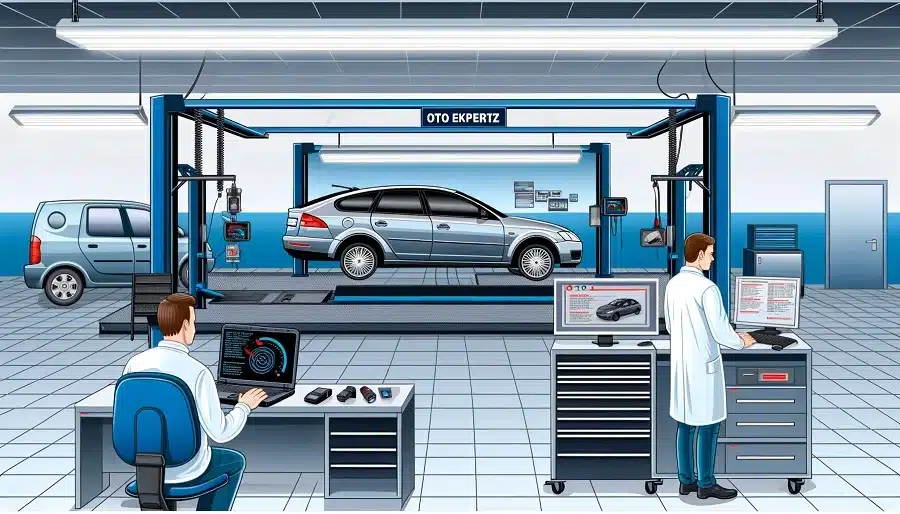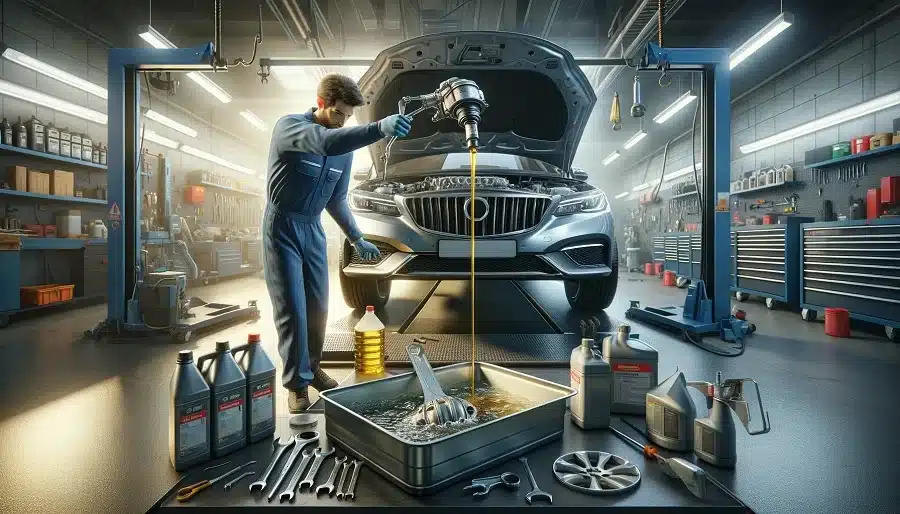Regular maintenance of vehicles is crucial for a safe and efficient driving experience. Timely maintenance prolongs the life of the vehicle, prevents potential malfunctions, and reduces the risk of breakdowns.
Here’s a detailed vehicle maintenance guide:
Timing of Annual Vehicle Maintenance
- Overview: The timing for vehicle maintenance varies depending on the make, model, and usage conditions of the vehicle. Most vehicles are recommended for annual maintenance or at specific mileage intervals.
- Mileage and Time Interval: For gasoline and diesel vehicles, maintenance is generally recommended every 10,000 to 20,000 km, while hybrid vehicles are advised to have maintenance approximately every 15,000 km.
- Vehicle Usage: In cases of heavy usage, a vehicle may require more frequent maintenance. This means the vehicle should be serviced more often than its annual check-up.
Learning the Vehicle Maintenance Schedule
- User Manual and Authorized Service: The best way to learn about your vehicle’s maintenance schedule is to refer to the user manual or contact an authorized service center.
- Online Resources: Information about the maintenance schedule can also be obtained through the vehicle’s official website.
What is Checked During Vehicle Maintenance?
Vehicle maintenance involves checks and replacements that are critical to maintaining the overall condition of the vehicle and preventing potential malfunctions. Key aspects include:
- Exterior Checks: Inspecting the vehicle for any damages, scratches, or dents.
- Engine and Mechanical Systems: Checking critical components like the engine, transmission, and radiator.
- Brake and Suspension System: Inspection of brake pads, discs, and suspension components.
- Electrical and Equipment: Functionality of in-car electronic systems, lighting, stereo, and air conditioning.
- Oil and Filter Change: Checking and replacing engine oil, air filter, pollen filter, and other fluids if necessary.
Important Points
- Early Intervention: Minor issues detected during maintenance can be resolved before they lead to major malfunctions and costs.
- Safety and Performance: Regular maintenance keeps the vehicle’s safety and performance at its peak.
- Value Preservation: Regularly maintained vehicles retain their value in the second-hand market.
Not only does vehicle maintenance ensure the proper functioning of the vehicle, but it also directly affects the safety of the driver and passengers. Therefore, do not neglect your vehicle’s maintenance and adhere to the recommended maintenance intervals.
What Happens If Vehicle Maintenance Is Neglected?
The importance of vehicle maintenance plays a vital role in safe driving practices and the efficient use of the vehicle. Skipping regular vehicle maintenance can lead to increased safety risks and significantly affect the vehicle’s performance.
Neglecting regular vehicle maintenance can cause small issues to evolve into major malfunctions. Particularly, noticing a malfunction while driving can often be too late, leading to sudden stops or accidents. Ignored problems can deteriorate the overall functioning of the vehicle over time and lead to costly repairs.
The value of vehicles in the second-hand market is also directly related to regular maintenance. Vehicles with neglected maintenance fetch lower prices, while those regularly maintained retain their value. Lack of maintenance can result in lower valuations in appraisal reports due to worn parts and potential issues being identified.
It’s crucial for every vehicle owner to ensure their vehicle undergoes the necessary checks and repairs during its scheduled maintenance periods. This not only maintains the safety and performance of the vehicle but also results in long-term cost savings.
Types of Periodic Vehicle Maintenance
Periodic vehicle maintenance includes a series of standard procedures that vary based on the vehicle’s model, usage, and mileage. Authorized service centers offer maintenance plans suited to the condition of the vehicle:
Standard Maintenance: This is the basic maintenance every vehicle owner is required to do at certain mileage intervals. It includes standard procedures such as oil and filter changes. Vehicle users may refer to these as different mileage maintenances.
45,000 and 60,000 Kilometer Maintenances: In addition to standard maintenance, these include more comprehensive checks and some additional procedures. Operations such as automatic transmission fluid change, spark plug, and alternator belt replacement are performed during these maintenances.
Major Maintenance: This type of maintenance is highly regarded both by service centers and vehicle users. Besides the normal maintenance procedures, it involves changes and repairs to critical parts of the engine. Critical operations like timing belt repair fall under major maintenance.
Vehicle maintenance is an important investment that enhances driving safety and ensures the vehicle’s longevity. Vehicle owners should be aware that regular maintenance preserves vehicle performance and prevents potential malfunctions.
Checks Performed During Periodic Vehicle Maintenance
Periodic vehicle maintenance can vary based on the vehicle’s condition and mileage information. Standard maintenances typically include:
- Damage control of changing parts and chassis
- Inspection of bodywork and front assembly for damage
- Check of internal and external electrical/electronic systems
- Examination of tire pressure, deformation, and tread depth
- Check of rims and lighting system
- Maintenance of the brake system and engine components
- Replacement of the pollen filter and oil drain plug gasket
- Examination of the exhaust and battery system
- Check of suspension and brake fluid levels
- Antifreeze level check
Additional procedures performed during the 45,000 and 60,000 kilometer maintenances and major maintenance include:
- Replacement of the air filter, engine oil, and oil filter
- Spark plug replacement for gasoline vehicles, fuel filter replacement for diesel vehicles
- Automatic transmission maintenance and oil/filter replacement
- Inspection and replacement of the alternator belt
Major Maintenance Process
Major maintenance involves a more comprehensive check and repair process for the vehicle. Alongside all procedures included in standard and mileage maintenances, it also involves:
- Timing belt replacement
- Inspection and, if necessary, replacement of the clutch system and pressure plate
- Transmission oil change
- Detection of oil leaks and replacement of gaskets/seals
- Detailed inspection of the front assembly and suspension
- Checking of wheel alignment and balance settings
Major maintenance preserves the vehicle’s performance, maximizes its resale value, maintains fuel consumption balance, and restores the vehicle to its optimal performance level. Regular vehicle maintenance is essential for a safe and efficient driving experience.


